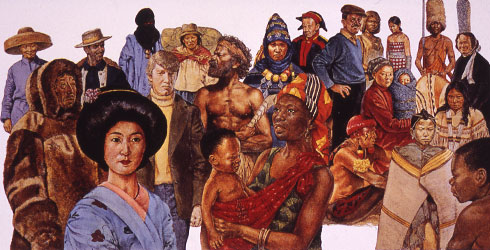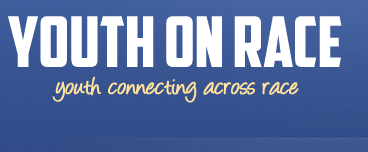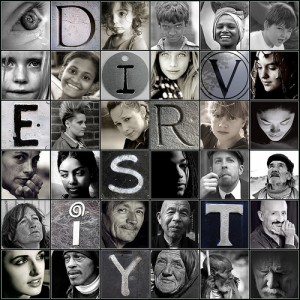
Diversity Woven in the Web of Humankind
By Marlene Caroselli
Diversity woven in the web of humankind, if understood and appreciated, could eradicate racism, wanton discrimination, and self-segregation.
I’m older and wider than I was in 1967, when I first traveled on the Orient Express. Although the train has since been associated with murder mystery and opulent accommodations, at the time it was simply an international rail service that went from Paris to Istanbul.
My college roommate and I had saved a year’s teaching salary in order to explore Europe and that Turkish city on seven bodies of water that is located on two continents. There we were, drinking in the wonders of an old world that was new to us. Needless to say, our love of different cultures, different geographies, different cuisine, etc., was deepened and broadened. To this day, that uber-fascination with otherness still exists for me, in ever so many forms. We witnessed first hand the diversity woven in the web of humankind.
We came back to a turbulent time in America. The Vietnam War was still moving toward the senseless enormity of 50,000 deaths of brave young men; riots were breaking out in many cities, following the assassination of Martin Luther King, Jr. and we were returning to the classroom. I was an English teacher at Jefferson High School, the same school from which I had graduated seven years earlier.
In addition, although there is no dearth of magnificent American poets, travel had awakened me to the magnificence of other worlds and other words, including the various forms of Japanese poetry. Today, for example, nearly everyone knows about haiku—the three-line poems that use five, then seven, and then five syllables to capture images and emotions. However, less well-known is the Japanese tanka, (often constructed as a single line of 31 syllables) that dates back to the seventh century. The tanka is preferred by those who seek verbal economy and intimate expression.
As America has embraced poets and poetic constructs from all over the world, so have we embraced those immigrating to the land of promise. But too many of us cannot appreciate the diversity woven in the web of humankind.
The Zimmerman trial notwithstanding, millions of us are eager to respond, “We can! We can!” when presented with the question from another divisive trial. “Why can’t we all just get along?” Rodney King asked in 1992.
In a time-reversal familiar to “Lost” fans, the answer can perhaps be found in the words of Chief Seattle, Native American tribal leader. “Humankind has not woven the web of life,” he reminded us 150 years before Rodney King was beaten. “We are but one thread within it. Whatever we do to the web, we do to ourselves. All things are bound together. All things connect.”
Here’s hoping the web of life ensnares more and more diversity-appreciation.
Feature Photo Credit: nhm.ac.ulc









No Responses to “Diversity Woven in the Web of Humankind”